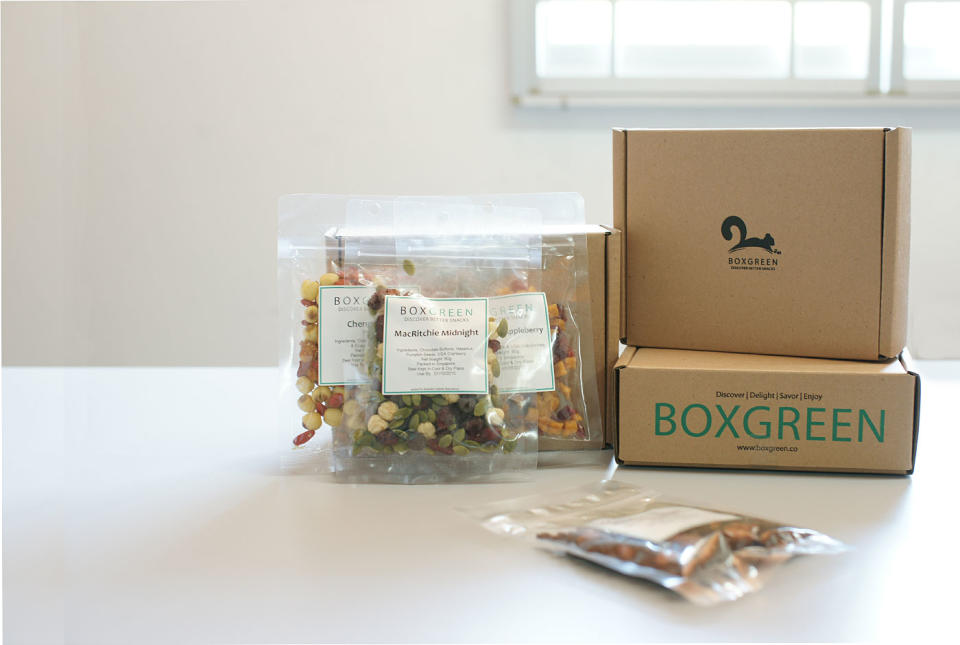BoxGreen wants you to go nuts for healthier snacks

Walter Oh was a fat child, by his own admission. With his new startup, the former banker is ensuring he stays in shape. As if the stress of running a new startup isn’t enough to keep him slim, he’ll also be able to nibble on his startup’s own product – a range of own-brand nuts and dried fruits.
BoxGreen is focusing for the moment on the Singapore market, where the co-founding team of Oh and Andrew Lim are based. The duo want to help fix the culture of junk food that goes with being stuck in a 9-to-5 routine. “BoxGreen was started as an answer to a personal problem while my co-founder Andrew and I were working in our corporate jobs. We both had very unhealthy eating behaviors and ate all the junk food that was lying around our office desks,” says Oh. “Personally, I really didn’t understand nutrition at all and as a once obese kid, my body was telling me this diet will eventually lead to health complications.”
Rather than simply setting up a specialist ecommerce startup for healthy food, the duo decided instead to create their own brand and bring in nutritionists to create the products. “When we started BoxGreen, we felt it was very important to us to build our own brand and control the customer experience,” Oh explains.
See: 10 promising Southeast Asian tech entrepreneurs under 30
Subcom survival
The site has some of the snacks you might already eat, like banana chips and toasted pistachios, as well as more elaborate confections like “Sunshine in a Bag” (diced apricots and sunflower seeds) or the “Cranberry Fusion” (cranberries, raspberries, blueberries).

BoxGreen is selling the goods via monthly boxes rather than on-demand for individual items, mirroring the model taken by “subcom” startups for things like beauty products. However, it’s an approach that hasn’t worked out well for beauty box ventures, with many shutting down or pivoting to become a more traditional ecommerce store. Oh reckons that, despite the lesson from history, the subcom strategy suits the startup’s snack food offerings. “Being a subscription program helps maintain the standard for what we needed to deliver to the customer. We had to earn the customer’s trust every month and we think this direct-to-consumer approach helps us to do so, as compared to just leaving our snacks in retail shelves,” Oh says. He goes on:
The more subtle but important points behind a subscription model is it provides a steady stream of revenue and allows us to forecast our inventory in advance since we are creating our own snack mixes. Also with [this] approach, we are also able to collect data ratings of our snacks and A/B test various snacks quickly to figure consumer trends. This allows us to shorten our snack production time to three months as compared to 15 to 18 months in traditional food makers.
Oh says they’d switch to on-demand sales if customers request it en masse.

BoxGreen co-founder Walter Oh
Until then, the idea behind BoxGreen seems to be that you’d stock up a month’s supply of healthy stuff to keep you from eating a sugary Kaya toast for breakfast or a bag of M&M’s to fix that 3:30pm office downer.
BoxGreen is not Oh’s first startup, but it would be the first to get fundraised, which is on the agenda for this summer. The team is now close to graduating BoxGreen from JFDI’s 100-day startup accelerator.
This post BoxGreen wants you to go nuts for healthier snacks appeared first on Tech in Asia.


